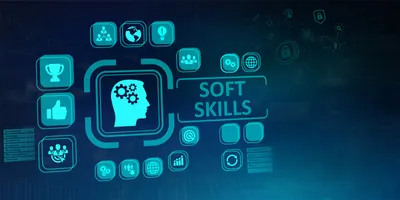As artificial intelligence and automation reshape the workplace, new research suggests technical skills alone will not future-proof careers. Instead, foundational abilities—such as collaboration, communication, and problem-solving—are proving to be the strongest drivers of long-term success.
The study: why foundational skills matter more than technical know-how
Researchers Moh Hosseinioun, Frank Neffke, Hyejin Youn, and Letian (LT) Zhang analyzed US data spanning 1,000 occupations and 70 million job transitions between 2005 and 2019. They grouped competencies into two categories: foundational skills (reading comprehension, basic math, teamwork, adaptability) and specialized skills (such as blockchain development).
Their findings, published in Nature Human Behaviour, show that workers with strong foundational skills were more likely to earn higher wages, move into advanced roles, and adapt to industry shifts. In contrast, those relying on narrow technical expertise often saw their skills lose relevance as technologies fell out of use.
Raising the ceiling: how strong foundations unlock long-term growth
The researchers note that foundational skills don’t just open doors at the start of a career—they raise the long-term ceiling. They compare this to the NBA draft, where teams don’t always pick the top college scorers, but instead choose players with the right fundamentals. Strong foundations give people room to grow, while narrow skills limit how far they can go.
Not every organization takes the long view, however. Startups and high-turnover workplaces may prefer candidates who can contribute immediately, even if they lack the adaptability that supports growth over time.
Adaptability in the lab: surviving the shrinking half-life of technical skills
In laboratories, where new technologies—from automation to generative AI—emerge rapidly, adaptability is essential. The study shows that skills like critical thinking, communication, and teamwork enable professionals to learn new methods more quickly and pivot when specialized techniques become obsolete.
Recent history makes this clear: Adobe Flash once dominated interactive content but vanished almost overnight. Hadoop engineering and blockchain development surged in demand, then fell sharply as newer technologies emerged. The researchers warn that the “half-life” of technical skills has shortened from 10 years in the 1980s to less than four years today, and may soon fall below two.
Social and cognitive skills: the glue holding modern teams together
The study also highlights social skills as particularly important for professional advancement. Cross-functional teams, remote collaboration, and complex projects all depend on people who can align goals, share knowledge, and reduce conflict.
But social skills are only part of the equation. Cognitive abilities such as critical thinking, reasoning, and complex problem-solving are equally crucial in today’s lab environments. Together, these skills form the platform that allows scientists and staff to adapt their expertise as technology and research priorities shift.
Major companies have reached the same conclusion. Amazon’s Upskilling 2025 initiative invests in language and leadership training as well as technical skills. Spotify’s squad model rewards engineers who bridge design, product, and marketing teams. Google’s Project Oxygen found that its best managers excel in coaching, communication, and collaboration—and rewrote its promotion criteria accordingly.
Putting it into practice: what lab managers can do now
The research offers several takeaways that apply to laboratory leaders:
- Hire for potential: Screen for adaptability, communication, and problem-solving—even in technical roles. Traditional unstructured behavioral interviews have little predictive power here, so targeted questions about learning, teamwork, and handling uncertainty can help reveal foundational strengths.
- Develop employees early: Invest in communication, collaboration, and learning agility at the start of careers. Foundational skills are far harder to build later—just as someone struggling with math cannot become fluent through a few short tutorials, social skills like empathy and critical thinking develop over years.
- Model soft skills: Recognize and reward collaborative behaviors. Use mentoring, peer feedback, and team retrospectives to reinforce them.
Bottom line
In a field where technical expertise evolves quickly, soft skills remain constant. By prioritizing foundational abilities—both social and cognitive—lab managers can build resilient teams that thrive in today’s environment and adapt to tomorrow’s challenges.













